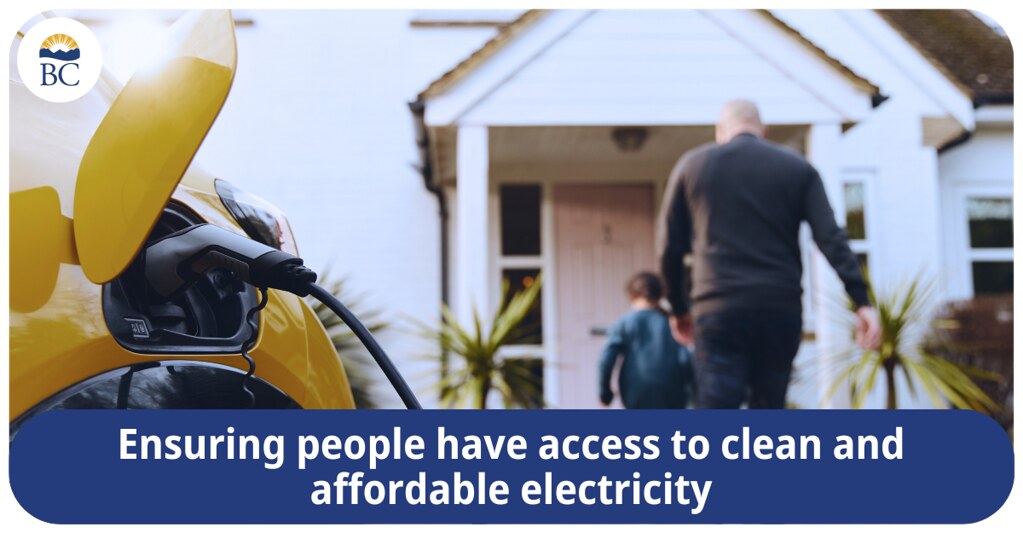
BC Hydro issues ‘call for power’ as it seeks to boost clean electricity from renewable resources
April 4, 2024
By Canadian Biomass Staff

BC Hydro has put out a “call for power” as it looks to the future to provide clean and affordable electricity for the province’s growing economy.
It has issued a request for proposals to acquire about 3,000 gigawatt hours per year of electricity from clean or renewable resources, including biomass, biogas, wind, solar, hydro and geothermal heat.
“British Columbians are on the front lines of the fight against climate change and seeing the devastating impact it is having on our communities. The switch from fossil fuels to clean power has never felt more urgent,” said Josie Osborne, Minister of Energy, Mines and Low Carbon Innovation. “That’s why we are working in collaboration with BC Hydro, First Nations and the independent power industry to generate more of the electricity that B.C. needs to build a clean economy and power our future.”
Following months of engagement with the independent power industry, First Nations and stakeholders, BC Hydro has issued the RFP. This is BC Hydro’s first competitive call for power in 15 years and will add five per cent to its current supply, providing enough clean electricity to power 270,000 homes or approximately one million electric vehicles per year, it said.
New jobs, new spending
The development and construction of new clean-energy projects in response to the call for power will generate an estimated $2.3 billion to $3.6 billion in private capital spending throughout the province and create approximately 800 to 1,500 jobs on average annually.
Electricity demand is expected to increase by 15 per cent between now and 2030. This is due to population growth and housing construction, increased industrial development, including in the mining sector, and more homes and businesses switching from fossil fuels to clean electricity, among other factors.
“We’re taking action to create thousands of construction jobs for skilled workers as major infrastructure projects like Site C reach completion,” Osborne said. “Together with BC Hydro’s 10-year capital plan, today’s call for power – the first in over 15 years – will drive sustainable growth for communities all over the province, and ensure households and businesses can power up with clean, reliable and affordable electricity.”
Intermittent renewables
B.C. is well positioned to add intermittent renewables, such as wind and solar, to the electricity grid as its integrated, flexible system of hydroelectric dams act as batteries. The reservoirs store water and allow BC Hydro to ramp production up or down almost instantly, providing a reliable backup when the sun isn’t shining or the wind isn’t blowing. The cost of wind and solar, and the time needed to construct new facilities has dropped in recent years.
This will be the first in a series of calls for power, as BC Hydro requires more power to electrify B.C.’s growing economy and meet the Province’s climate targets. BC Hydro expects its next call to be issued in 2026, with successive calls to be issued approximately every two years. The volume and timing of future calls will be determined through BC Hydro’s long-term resource-planning process and subject to review by the BC Utilities Commission.
What is BC Hydro looking for?
The request for proposals (RFP) for new sources of electricity generation was posted on BC Hydro’s website on April 3, 2024.
In order to participate, proposed projects must:
- have a plant capacity (maximum output) that is greater or equal to 40 megawatts (MW), and less than or equal to 200 MW;
- have a minimum 25% equity ownership held by one or more First Nations, whose territory includes the location of the project;
- qualify as a clean or renewable resource as defined in the Clean Energy Act (including wind, solar, hydro, biomass, biogas and geothermal heat);
- be located in British Columbia, excluding Fort Nelson, non-integrated areas, and other areas of the province from which BC Hydro would be required to transmit energy through another out-of-province jurisdiction to the Lower Mainland;
- reasonably expected to be able to achieve a commercial operation date between Oct. 1, 2028, and Oct. 1, 2031;
- be a newly constructed facility, which could include new generating units that will generate energy in addition to any existing on-site generation units;
- use proven generation technologies – i.e., readily available in commercial markets and in commercial use, as evidenced by at least three generation plants generating electrical energy for three years to a standard of reliability generally required by good utility practice; and
- have an executed interconnections request filed with BC Hydro for the project.
Additional credits will be awarded in the bid evaluation process for:
- projects with First Nations equity ownership that is higher than the 25% minimum requirement (rising from 26% to 51%); and
- projects that provide other forms of benefits flowing to non-equity holding First Nations on whose territory the project is located.
The RFP also includes incentives for successfully bid projects that are able to go into operation between Oct. 1, 2028, and Oct. 1, 2030.
The closing date for submissions to the call for power RFP is Sept. 16, 2024. BC Hydro expects to award electricity purchase agreements to successful proponents in December 2024.
Print this page